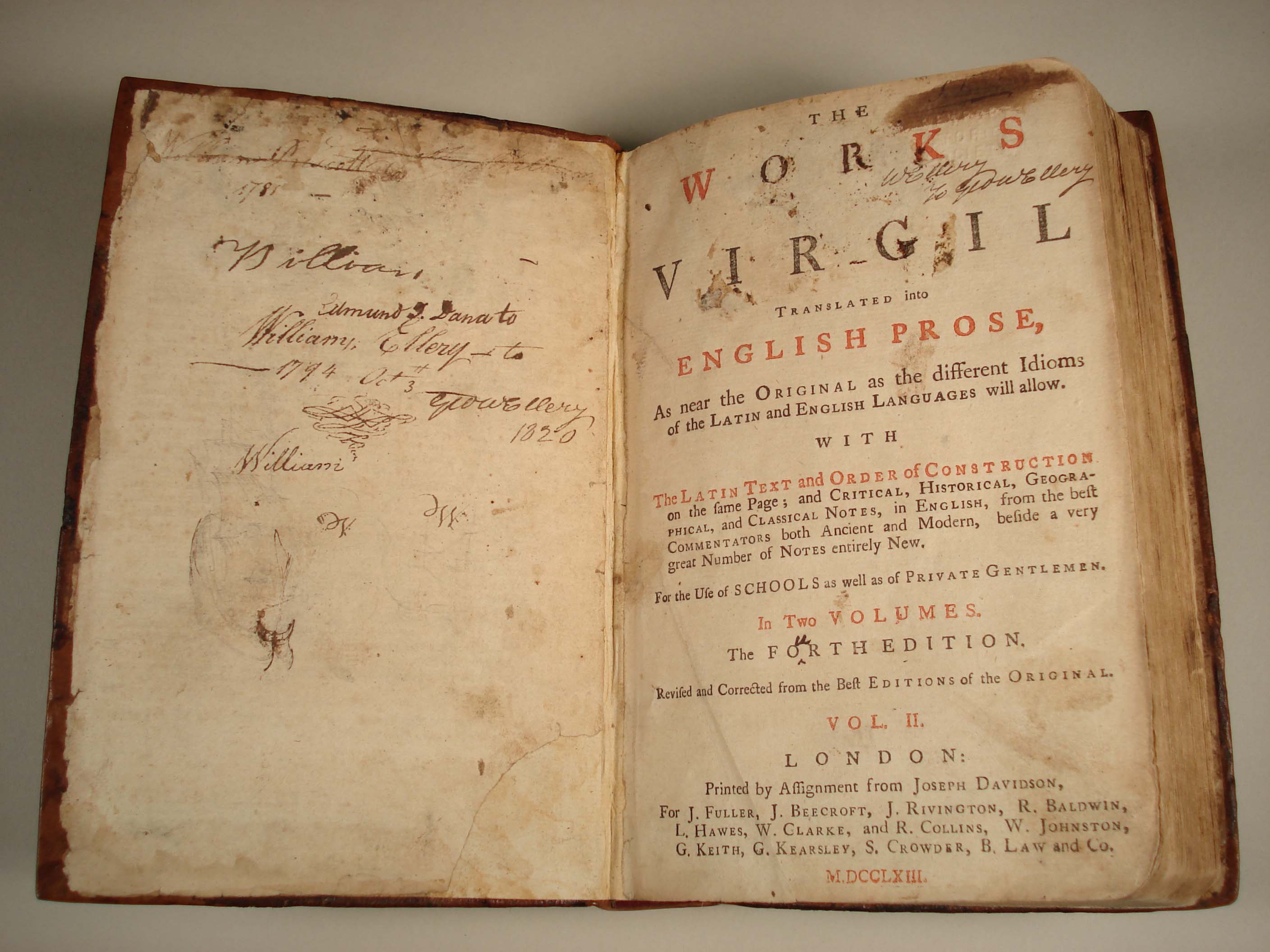
Newport’s William Ellery is well-known as one of the company of men who placed their names onto one of the nation’s most hallowed and historic documents: the Declaration of Independence.
Ellery was born in Newport into a family of privilege on December 22, 1727 (Portraits of his grandparents are on display at the Museum & Shop at Brick Market). He entered Harvard in 1743, where he was better known for his humor than his academic achievement, but there is no doubt that he developed a life-long interest in scholarship. After graduation, Ellery followed his interests and his pleasure into a number of different occupations. He began the practice of law in 1764 after securing an income from his father’s estate. It was in this same year that he caught the political fever as well, as growing British taxes wrought unprecedented resentment and protest among his fellow Newporters.
In 1776, Ellery’s place in history was secured by the unexpected death of his political associate, Samuel Ward. Ward had served as one of the Rhode Island representatives in the Continental Congress. William Ellery was elected as his successor, and traveled to Philadelphia where he signed the Declaration of Independence. Following a nearly ten year career as a member of Congress, Ellery held a number of other occupations including Lord of Admiralty, Judge, Loan Officer, and finally Customs Collector.
Throughout his life, Ellery continued to expand his knowledge of the arts and sciences. He united with his good friend and intellectual companion Ezra Stiles in scientific pursuits including chemical experiments with rum and observation of meteorological phenomenon. William was especially adept with the classical languages. He urged his children and grandchildren to devote as much time and patience as was necessary to acquire a sound understanding of the great classical works. His love of the classics continued until his last hours; he was translating Virgil’s Aeneid and Horace’s Espistles in the last month of his life and he died reading Cicero.
In recent years a descendant of Ellery’s (there are many in Rhode Island) donated several boxes of family books to the NHS, which were originally thought to be law and college texts from the 19th and 20th centuries. Included in the boxes, however, were many volumes from William Ellery’s personal library, including this copy of Virgil’s works. Ellery annotated and drew in many of these volumes, and passed them down to descendants. Note, in the photograph, that one of these corrected the spelling of “Fourth” in the printed text.